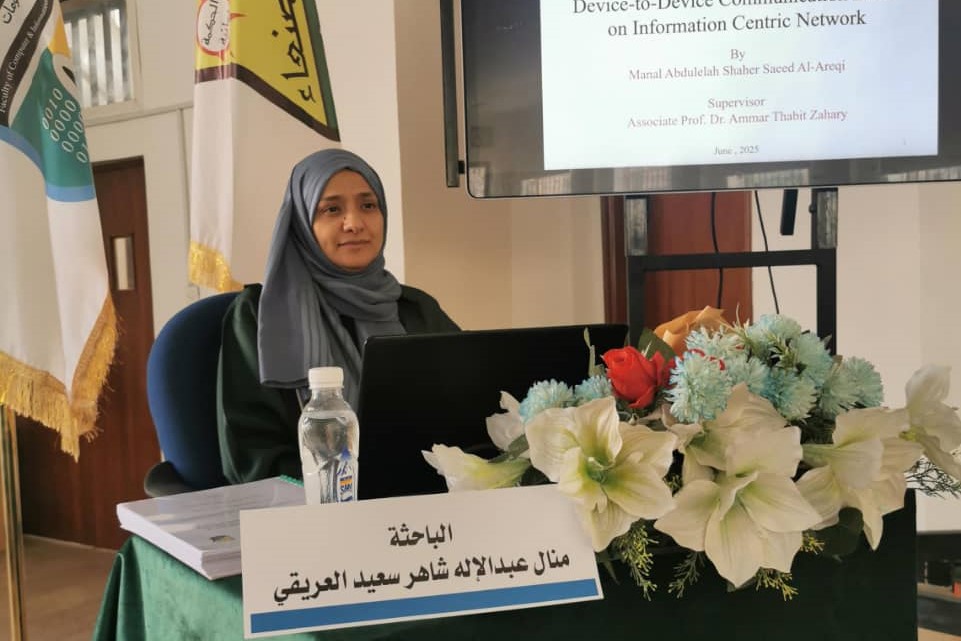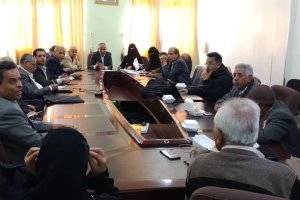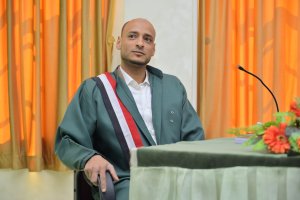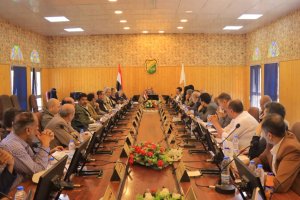PhD Degree Awarded to Ms. Manal Abdulilah Al-Ariqi in Information Technology
- Categories Letters and Promotions - Graduate Studies, news, Regulations - Postgraduate Studies
- Date June 18, 2025

Ms. Manal Abdulilah Shaher Saeed Al-Ariqi was awarded a PhD degree for her dissertation titled “An Interactive Model for Internet of Things Device-to-Device Communication Based on Information-Centric Networks,” which was submitted to the Department of Information Technology, Faculty of Computer and Information Technology – Sana’a University. The PhD dissertation defense was held on Monday, Dhul-Hijjah 6, 1446 Hijri, corresponding to June 2, 2025.
The PhD Viva-Voce Committee, which was formed based on a resolution issued by the Post-Graduate Studies and Scientific Research Council, consisted of the following:
| # | Committee Members | Designation | Position |
| 1 | Prof. Ibrahim Ahmed Al-Balta | Internal Examiner | Chair |
| 2 | Prof. Ammar Thabet Zuhari | Main Supervisor | Member |
| 3 | Assoc. Prof. Fuad Hussein Abdulrazzaq | External Examiner | Member |
This dissertation presented an experimental model to compare the performance of the Named Data Networking (NDN) protocol with the traditional Internet Protocol (IP) in Mobile Ad Hoc Network (MANET) environments. The model was evaluated based on key performance indicators such as End-to-End Delay, Throughput, and Packet Loss.
The dissertation aimed to develop three proposed models: An experimental comparative model between Traditional-NDN and IP, the MOC-NDN model, and the OGC-NDN model.
These models were evaluated using the ndnSIM simulator, built on NS-3, in diverse environments varying in speed and node density.
The findings showed that MOC-NDN is suitable for organized and complex networks requiring centralized coordination, while OGC-NDN offers flexibility and distribution, making it ideal for dynamic, rapidly changing environments. The study confirmed NDN’s superiority over IP in MANET applications and provides practical models that serve as a useful reference for researchers and developers to understand NDN’s performance and its application in future Internet of Things networks.
The dissertation concluded with several recommendations, including: utilizing OGC-NDN in large-scale, high-mobility networks, such as disaster response networks and areas lacking infrastructure, where mobility efficiency and rapid content dissemination are vital. Conversely, the MOC-NDN model remains more suitable for small, power-constrained environments due to its efficiency in maintaining signal stability and power management.
The PhD dissertation was examined and recommended by the Viva-Voce Committee for acceptance and approval. The PhD defense was attended by a number of academics, researchers, interested students, the candidate’s colleagues, and family members.
Previous post





